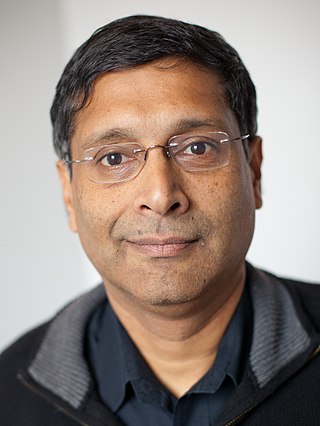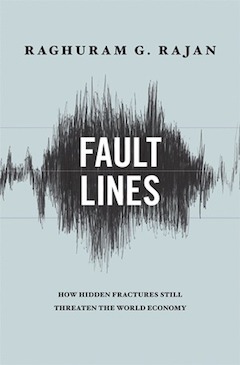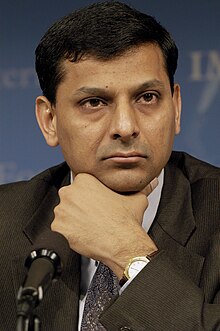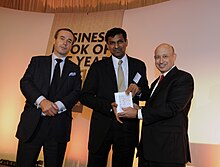
The International Monetary Fund (IMF) is a major financial agency of the United Nations, and an international financial institution funded by 190 member countries, with headquarters in Washington, D.C. It is regarded as the global lender of last resort to national governments, and a leading supporter of exchange-rate stability. Its stated mission is "working to foster global monetary cooperation, secure financial stability, facilitate international trade, promote high employment and sustainable economic growth, and reduce poverty around the world."

The Reserve Bank of India, abbreviated as RBI, is India's central bank and regulatory body responsible for regulation of the Indian banking system. Owned by the Ministry of Finance, Government of India, it is responsible for the control, issue and maintaining supply of the Indian rupee. It also manages the country's main payment systems and works to promote its economic development. Bharatiya Reserve Bank Note Mudran (BRBNM) is a specialised division of RBI through which it prints and mints Indian currency notes (INR) in two of its currency printing presses located in Mysore and Salboni. The RBI, along with the Indian Banks' Association, established the National Payments Corporation of India to promote and regulate the payment and settlement systems in India. Deposit Insurance and Credit Guarantee Corporation was established by RBI as one of its specialized division for the purpose of providing insurance of deposits and guaranteeing of credit facilities to all Indian banks.

Randall S. Kroszner is an American economist who served as a member of the Federal Reserve Board of Governors from 2006 to 2009. Kroszner chaired Fed's board Committee on Supervision and Regulation of Banking Institutions during the global financial crisis. He has been professor of economics at the University of Chicago since the 1990s, with various leaves, and named Norman R. Bobins Professor of Economics at the University of Chicago Booth School of Business in 2009, and serves as a senior advisor for Patomak Partners.
Capital controls are residency-based measures such as transaction taxes, other limits, or outright prohibitions that a nation's government can use to regulate flows from capital markets into and out of the country's capital account. These measures may be economy-wide, sector-specific, or industry specific. They may apply to all flows, or may differentiate by type or duration of the flow.
The Deutsche Bank Prize in Financial Economics honors renowned researchers who have made influential contributions to the fields of finance and money and macroeconomics, and whose work has led to practical and policy-relevant results. It was awarded biannually from 2005 to 2015 by the Center for Financial Studies (CFS), in partnership with Goethe University Frankfurt, and is sponsored by Deutsche Bank Donation Fund. The award carried an endowment of €50,000, which was donated by the Stiftungsfonds Deutsche Bank im Stifterverband für die Deutsche Wissenschaft.

Arvind Panagariya is an Indian economist who is the Jagdish Bhagwati Professor of Indian Political Economy at Columbia University and is also the Director of Deepak and Neera Raj Center on Indian Economic Policies at School of International and Public Affairs at Columbia University in New York City. He served as first vice-chairman of the government of India think-tank NITI Aayog between January 2015 and August 2017. He has been appointed as the chairman of 16th Finance Commission by the government of India. He is a former Chief Economist of the Asian Development Bank. He was awarded the Padma Bhushan by the President of India in 2012 for his contributions in the field of economics and Public Policy. He has published widely on free trade as well as on the development of the Indian economy.
Rakesh Mohan is an Indian economist and former Deputy Governor of Reserve Bank of India. He is the Vice Chairperson of Indian Institute for Human Settlements. He was appointed in November 2012 as an executive director of the IMF for a three-year term, and in April 2010, he joined Nestlé India, as a non-executive director.

Yaga Venugopal Reddy is an Indian economist and a retired Indian Administrative Service (IAS) officer of the 1964 batch belonging to Andhra Pradesh cadre. Reddy served as governor of the Reserve Bank of India (RBI), India's central bank, from September 2003 until September 2008.

Douglas Warren Diamond is an American economist. He is currently the Merton H. Miller Distinguished Service Professor of Finance at the University of Chicago Booth School of Business, where he has taught since 1979. Diamond specializes in the study of financial intermediaries, financial crises, and liquidity. He is a former president of the American Finance Association (2003) and the Western Finance Association (2001-02).

Arvind Subramanian is an Indian economist and the former Chief Economic Advisor to the Government of India, having served from 16 October 2014 to 20 June 2018. Subramanian is currently a Senior Fellow at the Watson Institute for International and Public Affairs at Brown University. He previously served as Professor of Economics at Ashoka University and a Senior Fellow at the Peterson Institute for International Economics and Center for Global Development.

Deepak Mohanty is an economist. He holds the post of Chairperson of India’s pension regulator, Pension Fund Regulatory and Development Authority(PFRDA). He was Chief Economic Advisor, Federation of Indian Chambers of Commerce and Industry (FICCI) and was an independent Director on a few companies’ Boards. Prior to that, Dr. Mohanty was Whole Time Member, PFRDA.
The Chief Economic Adviser to the Government of India (CEA) advises the government on economic matters and is responsible for the preparation of the Economic survey of India tabled in Parliament before the Union budget of India is presented. The CEA holds the rank of a Secretary to the Government of India.

Urjit Patel is a Kenyan-born Indian economist, who formerly served as the 24th Governor of the Reserve Bank of India and also Deputy Governor of Reserve Bank of India, looking after monetary policy, economic research, financial markets, statistics and information management. He resigned from his post on 10 December 2018, being the first RBI governor to state personal reasons as a driving factor for resigning.

Fault Lines: How Hidden Fractures Still Threaten the World Economy is a 2010 book by Indian economist Raghuram Rajan on the underlying causes of the 2008 financial crisis, and the structural weaknesses present in the world economy. It won the Financial Times and McKinsey Business Book of the Year award in 2010.
Anil K. Kashyap, is the Stevens Distinguished Service Professor of Economics and Finance at the University of Chicago's Booth School of Business. Kashyap's research focuses on price setting, the Japanese economy, monetary policy, financial intermediation and regulation. As an author, he is held in libraries worldwide.
The Monetary Policy Committee is responsible for fixing the benchmark interest rate in India. The meetings of the Monetary Policy Committee are held at least four times a year and it publishes its decisions after each such meeting.

Shaktikanta Das is serving as the current & 25th governor of the Reserve Bank of India (RBI). He was earlier a member of the Fifteenth Finance Commission and India's Sherpa to the G20. Das is a retired 1980 batch Indian Administrative Service (IAS) officer of Tamil Nadu cadre.

Krishnamurthy Venkata Subramanian is an Indian economist who served as the 17th Chief Economic Adviser to the Government of India. Subramanian is a leading expert on economic policy, banking and corporate governance, who was the youngest Chief Economic Advisor to the Government of India, serving from 2018 to 2021. He has been appointed to the post of India's Executive Director at the IMF, with effect from November 1, 2022.
Michael Debabrata Patra is an Indian economist and central banker. A career Reserve Bank of India officer, he is currently serving as one its four deputy governors.
















